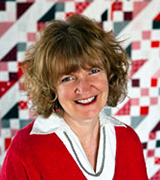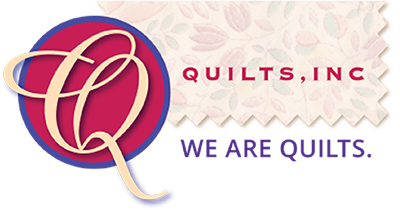During the war that took place in Bosnia-Herzegovina between 1992 and 1995, Bosnian Muslims were the targets of ethnic cleansing and genocide, and many fled their country to escape the violence.
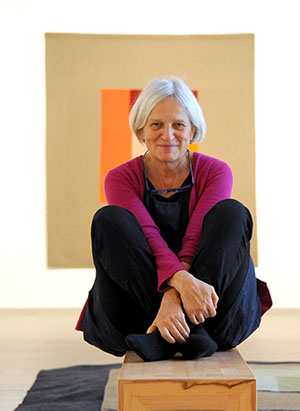
The Austrian government created a special status for these refugees and allowed them temporary protection until they could return to their homes. One of the refugee hostels for those fleeing the war was located in the Austrian state of Vorarlberg, not far from the home of artist Lucia Lienhard-Giesinger. Lucia was one of several artists in the region who had been invited in 1993 to work on textile projects with the refugees in order to create a diversion from the horrors they’d endured and give them something to do. A painter by profession, Lucia had the idea of encouraging the Bosnian women to render her abstract designs as quilts.
Neither she nor any of the 30 refugee women who initially took part in the project knew anything about quilting. “It was a matter of trial and error when we began,” Lucia recalls. “Two textile specialists very briefly showed us the way around, and thereafter the women and I met several times a week. Very soon the whole group were quite self-reliant in their work.”
The Catholic relief organization Caritas, which ran the refugee hostel, supplied materials, two sewing machines, a table for ironing, and space in a garage for the women to work. “We didn’t have quilting frames or pattern stencils—we didn’t even know those existed,” she continues. “But for all the wide range of social classes among exiled women in our group, quilting allowed them to leave all the worries for their relatives and friends in Bosnia behind for a little while. Stitch by stitch, they had the experience of something beautiful arising from their hands, and that does good.”
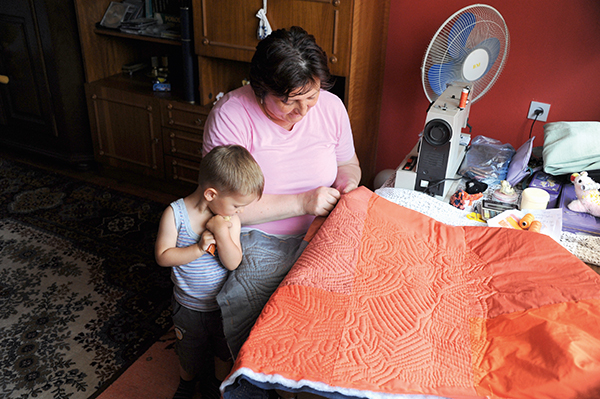
Lucia would produce a design, which would then be laid out in a full-scale version using fabrics on the garage floor. She would then draw a sketch with color instructions and precise dimensions for the women. After that, the women would transform the design into a quilt. The project went so well that Lucia began holding public exhibitions of the quilts. “Our first exhibitions’ visitors were amazed about those pieces from the garage workshop. And they bought the quilts, not for charity’s sake but because it was recognizably good work that they were willing to purchase for an appropriate price.”
Perhaps one of the most remarkable aspects of this encouraging effort is that it is still going—some 26 years after it first began.
The refugee hostel was closed in 2011, although many of the original women in the quilting project had returned to Bosnia-Herzegovina prior to that time. One of those was Safira Hošo, who went back in 1997 to her hometown of Goražde in east Bosnia, some 100 kilometers from Sarajevo.
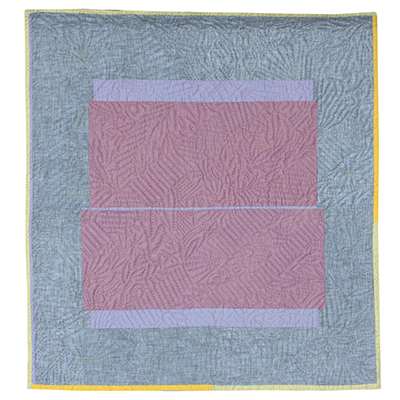
At that time, the city was still devastated from the war and there was little economic opportunity for anyone, especially women. Safira maintains that quilting has saved her life twice: first in the refugee hostel in Austria and then in her own country. As she was leaving Austria, she told Lucia, “If you don’t carry on, I’ll go crazy.”
Lucia agreed to continue and Safira assembled and now coordinates a group of 11 women in Goražde who earn a regular income from making quilts. Lucia regularly sends Safira designs from Vorarlberg. Safira picks up fabrics sent from Austria, translates Lucia’s sketch notes and distributes the designs among the women. When the quilts are finished, they are driven by minivan back to Lucia, who then displays them in a special design studio and showroom, Bosna Quilt Werkstatt, that she opened in Bregenz, the capital city of Vorarlberg.
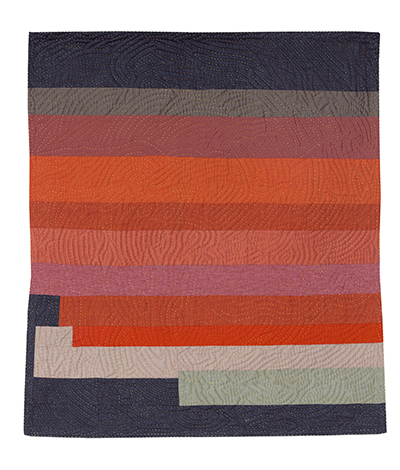
The studio sells about 80 quilts a year to museums, churches, and individuals. Demand is constant for the quilts that sell for 700 to 2,300 euros apiece. Lucia’s husband helps her advertise, show, and sell the quilts, all on a volunteer basis.
Both Safira and Lucia agree that the project has transformed their lives, and they are both passionate about what they are doing. “As long as we are healthy, we will continue to work together,” Lucia sums up.
For more information, see the website Bosna Quilts.

